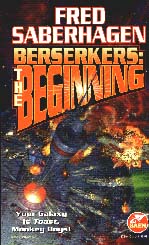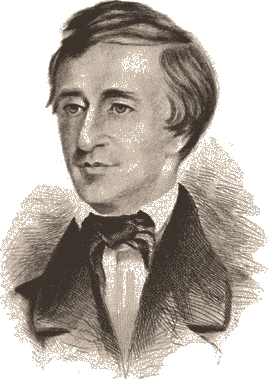 Fred Saberhagen , one of my favorite science fiction writers, passed away from cancer on June 29, 2007 at the age of 77. Saberhagen is probably best-known as the author of the Berserker series, a set of science fiction stories about humanity's war against self-repairing killing machines that roam the universe with the sole purpose of eliminating all life. Saberhagen used his Berserker stories to explore what it meant to be human, and several of them were based on works of literature such as Poe's "Masque of the Red Death" and Melville's Moby-Dick. Fred Saberhagen , one of my favorite science fiction writers, passed away from cancer on June 29, 2007 at the age of 77. Saberhagen is probably best-known as the author of the Berserker series, a set of science fiction stories about humanity's war against self-repairing killing machines that roam the universe with the sole purpose of eliminating all life. Saberhagen used his Berserker stories to explore what it meant to be human, and several of them were based on works of literature such as Poe's "Masque of the Red Death" and Melville's Moby-Dick.
Saberhagen was also Catholic, and if you can find a copy of his First Book of Swords, there's a fantastic afterword written by Catholic science fiction/fantasy critic Sandra Miesel (co-author of The Davinci Hoax) who summarizes his major works and explores his recurring themes and values.
I highly recommend the following books for any science fiction/fantasy fan (especially teenagers):
The Berserker series:
As mentioned earlier, the Berserkers are machines that scour the universe obeying their directive to destory life. Consider the opening paragraphs of "Without a Thought," the first Berserker story:
The Machine was a vast fortress, containing no life, set by its long-dead masters to destroy anything that lived. It and many others like it were the inheritance of Earth from some war fought between unknown stellar empires, in some time that could hardly be connected with any Earthly calendar.
 One such machine could hang over a planet colonized by men and in two days pound the surface into a lifeless cloud of dust and steam, a hundred miles deep. This particular machine had already done just that. One such machine could hang over a planet colonized by men and in two days pound the surface into a lifeless cloud of dust and steam, a hundred miles deep. This particular machine had already done just that.
It used no predictable tactics in its dedicated, unconscious war against life. The ancient, unknown, gamesmen had built it as a random factor, to be loosed in the enemy's territory to do what damage it might. Men thought its plan of battle was chosen by the random disintegrations of atoms in a block of some long-lived isotope buried deep inside it, and so was not even in theory predictable by opposing brains, human or electronic.
Men called it a berserker.
You can see echoes of the Berserkers in the Cylons of the new Battlestar Galactica series. Some stories read like horror tales, others like sword-and-sorcery fantasy, and still others like space opera. The Berserkers books are truly a landmark science fiction series.
Empire of the East
 Empire of the East is a blend of science fiction and fantasy set in a post-apocalyptic future. Warriors wield swords and wizards wield magic, and citizens occasionally come across an remnant of the Old Days, like flashlights, hand grenades or tanks. The book was originally published in three volumes: The Broken Lands, The Black Mountains, and Changeling Earth. Sandra Miesel describes the series in this way: Empire of the East is a blend of science fiction and fantasy set in a post-apocalyptic future. Warriors wield swords and wizards wield magic, and citizens occasionally come across an remnant of the Old Days, like flashlights, hand grenades or tanks. The book was originally published in three volumes: The Broken Lands, The Black Mountains, and Changeling Earth. Sandra Miesel describes the series in this way:
Saberhagen's Empire takes place in a post-catastrophe North America whose culture is vaguely medieval. Wizardry dominates this demon-ridden age while the rare bits of technology surviving from the Old World are objects of superstitious awe. (afterword, The First Book of Swords)
The story is epic and imaginative, from its boy-hero Rolfe to the giant beast Draffut. Saberhagen is at his finest in this series. It appears that Saberhagen added to the original series with the 2006 publication of Ardneh's Sword.
The Books of Swords and The Books of Lost Swords
 As a dedicated fantasy reader in my younger days, I could never get enough of magic swords: Arthur's Excalibur, Frodo's Sting, Elric's Stormbringer, I loved reading about enchanted blades. So I was in pure sword heaven with Saberhagen's Swords series, where there is not one magic sword, nor even two or three, but twelve enchanted blades made by Vulcan, blacksmith to the gods. As a dedicated fantasy reader in my younger days, I could never get enough of magic swords: Arthur's Excalibur, Frodo's Sting, Elric's Stormbringer, I loved reading about enchanted blades. So I was in pure sword heaven with Saberhagen's Swords series, where there is not one magic sword, nor even two or three, but twelve enchanted blades made by Vulcan, blacksmith to the gods.
In The First Book of Swords we learn that the gods have created twelve magic swords, each with a special power and a corresponding curse. For instance, the sword Coinspinner brings good luck to its wielder but is easily lost or taken; Wayfinder shows its bearer the quick path, but adds danger to the journey. Other swords include Sightblinder, Farslayer, Soulcutter and Townsaver.
The gods then cast these swords across the world to watch mortals fight over them. Taking place in the same world as Empire of the East, Saberhagen's two Swords series are not so much a continuation of the earlier story as much as they are new stories within the same environment.
There are two different Swords series, both with similar titles. The first series has been collected in one volume titled The First Swords. The second series, known as the Books of Lost Swords, is eleven books long, and (almost) each sword gets its own story. Saberhagen appeared to run out of steam on the final book, but all in all it's an entertaining series.
Conclusion
Fred Saberhagen may not have been the most well-known fantasy/science fiction writer, but he is certainly worth reading. And I haven't even touched upon his Dracula series, which some say is his best work. I haven't read the series yet, mostly because I don't particularly care for vampire stories, as you may remember from my review of the first Harry Dresden book.
I'd love to hear from any of you who've read any of his Dracula stories.
As I bring this to an end, I'll leave you with a description of Fred Saberhagen by Roger Zelazny, from the Prologue to Empire of the East:
Fred is a genial, witty, well-informed individual, with a wonderful wife named Joan, who is a mathematician, and the three best-behaved children I've ever met: Jill, Eric and Tom. He likes good food and drink and conversation.
Labels: catholic, fantasy, reviews, science fiction |
![]()
![]()















